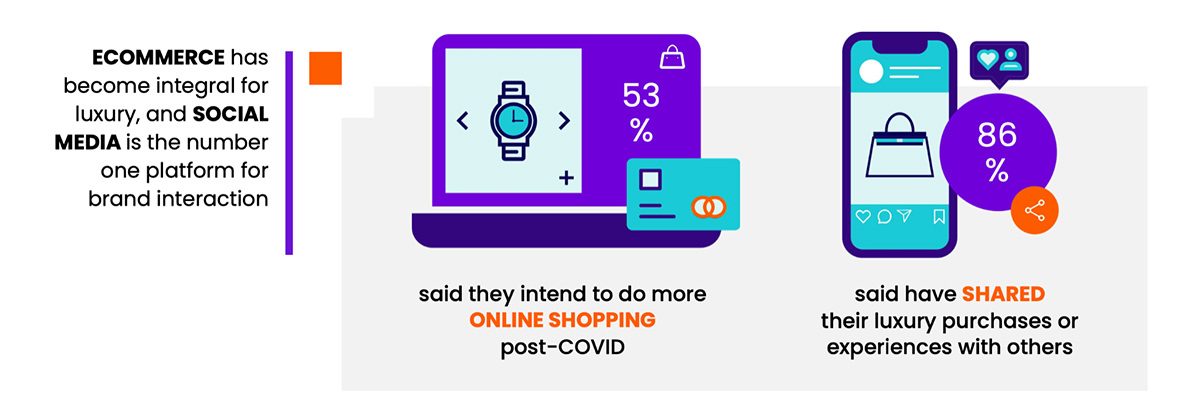Understanding this niche audience is key for marketers and our proprietary Audience Origin data provides unique insights into the luxury consumers’ mindset.
Data from this new branch of research shows that the global pandemic has accelerated a shift in how luxury is defined. Consumers are moving away from opulent, status-led luxury in favor of understated, mindful and future-focused purchases. There is a clear drive towards sustainability, with consumers now expecting much more from the luxury brands they buy. With greater environmental and social awareness, luxury consumers are demanding conscious, forward-thinking and sustainable luxury.

We predict that experiential luxury will be a big driver of future growth as well. Consumers will place equal importance on the pleasure and enjoyment they get from the luxury product as on the product itself. For example, while the broader finance and automotive sector is on the rise, looking more closely at the data, status-led automotive is down, while spending on financial investments is up. There is a clear shift away from the need to own the same things as other people as a means of projecting social status as consumer focus turns towards individualism and uniqueness.
Therefore, luxury marketing must do several jobs at once. Effective marketing in the luxury space should evoke the aspirational emotions associated with owning, wearing or experiencing something exclusive, while simultaneously conveying quality, a lavish lifestyle and a sense of connection to a brand’s values and community. Communicating the brand’s story and heritage represents one of the biggest opportunities for luxury brands online for driving awareness, affinity and consideration.




